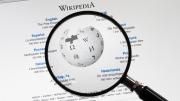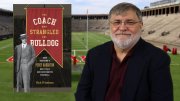If you tried to search for Emma Watson’s Wikpedia page in Iran in 2013, you wouldn’t have been able to find it; the article was one of 963 blocked by the government. This tidbit about the Harry Potter actress is found in a 2013 University of Pennsylvania report on Iran’s censorship of Wikipedia. Researchers at Harvard’s Berkman Klein Center for Internet & Society recently built on this publication by analyzing censorship of the site in 15 countries since 2014. In a report published in May, they found that censorship of Wikipedia has declined since then due to the site’s new security measures.
In fact, they discovered that only three countries blocked access to parts of Wikipedia during the duration of the study: China and Uzbekistan were blocking the Chinese- and Uzbek-language versions of Wikipedia (read more coverage of censorship in China, and its use of fake social media posts to influence public opinion). Thailand had once blocked the Yiddish version—most likely “a weird misconfiguration,” says Justin Clark, a software developer at the center and the principal author of the report. They derived their results partly by analyzing data from the Wikimedia Foundation (Wikipedia’s parent organization) that showed when people load Wikipedia articles, and partly from 41 servers located in different countries around the world that tried to load Wikipedia and could determine if the website was blocked.
Clark says there are multiple reasons for the changing levels of censorship. The first is Wikipedia’s transition from HTTP to HTTPS. HTTP (“hypertext transfer protocol”) guides the way a website’s data is sent to a browser. Because the connection is unencrypted, however, other people can intercept that connection and see the data being sent. In HTTPS, the “s” stands for “secure”; the major difference between the two protocols is that HTTPS encrypts the data being communicated.
Wikipedia’s transition affected the way countries could block access, Clark explains. With HTTP, a country could block an individual Wikipedia article. But with HTTPS, the country needs to choose between blocking every article or none. Countries are choosing the latter. As the report states: “Russia once again blacklisted Wikipedia over a single cannabis-related article, but the ban was reversed less than 24 hours later.”
Monitoring censorship of Wikipedia matters because “Wikipedia is one of the most prominent, and most important, sites out there,” says Rob Faris, the research director at the center, who also worked on the report. “How countries treat Wikipedia,” he continues, is indicative of how important Internet freedom is not only to them, but also to the rest of the world. Clark adds that understanding the information controls imposed on the Internet is “important for allowing an informed citizenry to emerge.”
As the first “complete empirical deep dive into incidents of the blocking of Wikipedia projects around the world,” Faris says, the report will inform future research as other investigators follow its methods. He also notes that accessing Wikipedia server data is novel. Such research paves the way for examining global Internet outages, Clark says, especially those deliberately caused by countries during elections or protests. He adds that after the study concluded, China blocked access to Wikipedia in additional languages spoken there, and Turkey in all languages, so the Berkman Klein Center will “continue to monitor Wikipedia around the world.”









